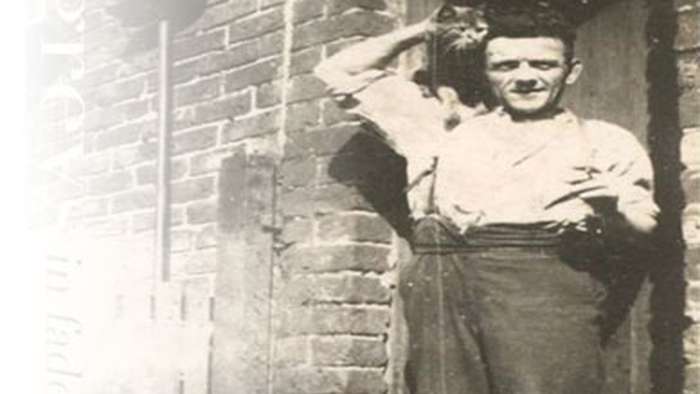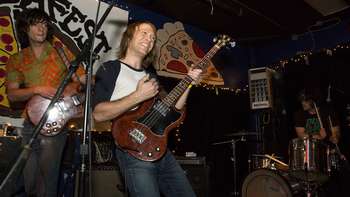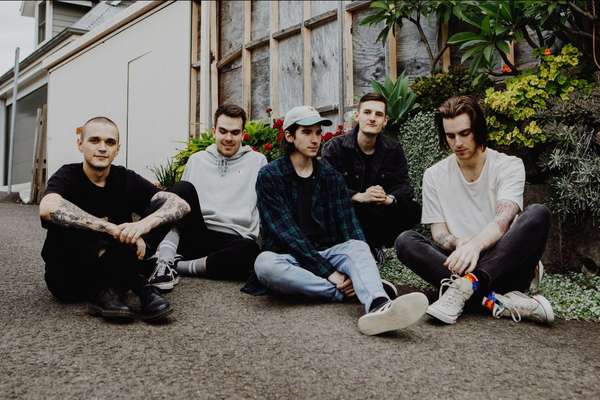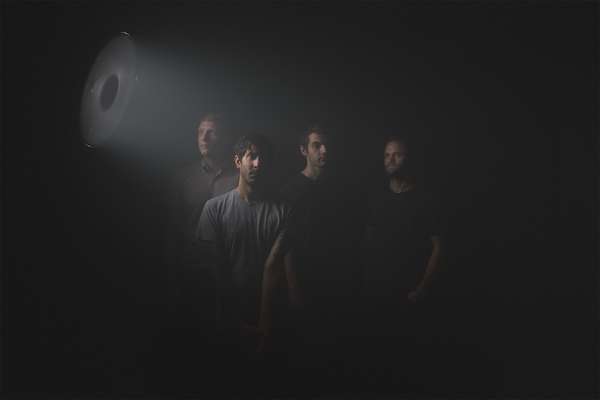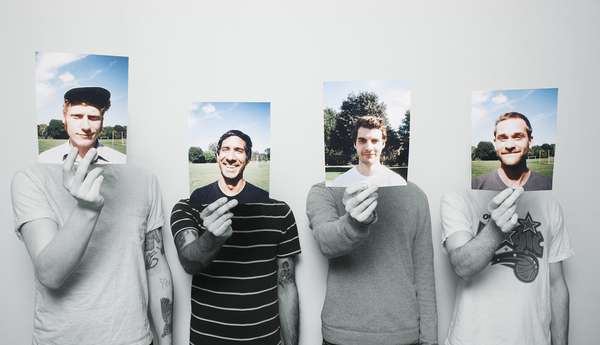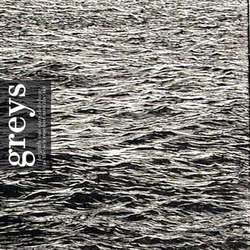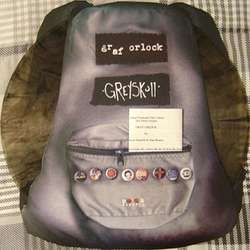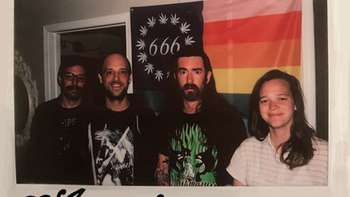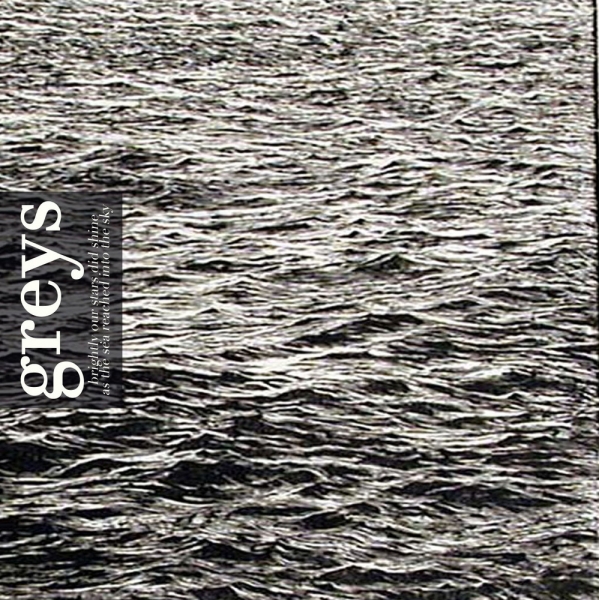
After being inexorably sucked into the first release from the ambient-esque Greys (imagine an ambient act with vocals), In Fades and knowing that an album was forthcoming, I wanted to pick the brain of the artist in the worst way. There was something that struck me about his music that I could not put my finger on by myself; so, reaching out to George Royle (the man behind Greys) became the most reasonable thing to do.
Scene Point Blank: So when did you decide to start GREYS? Had you ever done anything before that informed this project?
Greys: Greys started in the summer of 2008, not that I really put songs online till around the summer of 2010. Before I started Greys I hadn’t done anything musically and it all came about rather quickly once I’d got started. During the time Greys started I was bored like nothing else, I desperately needed an outlet. Greys gives me something to focus on and somewhere to hide. Even then, Greys is a draining experience more than it is a satisfying one. I don’t think I have much musical talent at all, most of what I’ve done is quite simple technically and I’m constantly struggling to do it. When I started I was just messing around with Soundforge and downloading samples off of freesound.org and it just went from there really. I knew I wanted to be able to do it all from my bedroom and not have to be in a band or anything like that.
Scene Point Blank: Was In Fades the first proper recording that you completed or do you have other demos that have not been thrust into the “spotlight” so to speak? Was In Fades part of a larger body of work or a stand alone piece?
Greys: There were a lot of other demos yeah but they were all shit. The In Fades tracks were the first Greys songs, but not the first tracks that I’ve done. They'll stay out of the spotlight, though my girlfriend does have the sole copy of an EP I did a few years back. In Fades isn’t thematically linked to anything else I’ve done though.
Scene Point Blank: Walk me through making In Fades. What came first, the music or the song titles? How well do you know Alan Rickman that you can make a statement like that?
Greys: Usually I write lyrics first and try to think of a tone or mood that’s coming through. Then I’d try and create the drones that would best fit to it. I hate coming up with song titles; I always leave that right to the end. To be brutally honest I don’t know Alan Rickman that well on a social basis, but I like to think we have a deep spiritual connection that transcends the world we live in. With his voice, anything is possible.
Scene Point Blank: Do you go through an exhaustive demo-ing process or do you just keep building layers until you reach a finished product? What’s your rig for creating drones (for the equipment nerds out there)? Have you ever snuck any Rickman samples anywhere in your compositions as like a scavenger hunt for people to find (like a DVD Easter egg)?
Greys: Oh most definitely there’s a long demo-ing process. I started B.O.S.D.S in September of ’10 and wanted it done by Christmas. Then by Easter, and then eventually I finished it in July. There’s about 3 or 4 wildly different versions of the album that were scrapped for one reason or another. I’m quite critical of what I’ve done and I’ve not been content with much of anything. I think I’m headed in the “right” direction though, whatever that is. As for hidden samples of stuff, well, they wouldn’t be hidden if I talked about them. Though for the next thing there will be a fair bit of that.
Scene Point Blank: What do you think was successful about In Fades (process, recording, release are all in bounds here)? What would you like to change given unlimited time and budget?
Greys: It’s tough to go back and remember the mindset I had during I.F, so much has changed since. Back then, I think it works because it’s a fairly tight release, 4 songs, all fairly different, all short. Around the time you start to understand one of those songs, they end, and then you want to listen to them again. The pacing of it worked well. There are some things about I don’t like, mistakes and such. The songs I was doing around that time were made in 3 or 4 different places due to going back and forth between university and home. That hindered everything a bit, it’d be nice to make a release entirely in the same room in the same town. The same problem was there for the album too but that’s just how it is at the moment. I don’t think I would change anything though, there’s always going to be mistakes and I’m rarely happy with a finished piece of work. There just comes a point where you’ve got to just put it out there. It’s interesting to look back and see how things are changing with Greys; the next release is shaping up to be a bit different.
Scene Point Blank: This new release is Brightly Our Stars Did Shine?
Greys: Yes. Yes it is. There’s some things about it I’d like to change and that I’m hoping to do differently for what’s next. But there were parts where I thought I’d never finish it. There came a point in July where I had to just send it off. It’s not finished, I just stopped working on it. That and because some people liked In Fades I felt some pressure to follow it up well. That feeling has long since faded away though. I just want to keep doing stuff at this point and I don’t care much about the response. In Fades broke Greys, in a way.
Scene Point Blank: I have been listening to the forthcoming album a great deal and have been struggling with this interview because I am distracted by the narrative going on while I listen. What made you go the route that you did for Brightly Our Stars Did Shine? Is the narrative fiction or otherwise or both? Did the narrative come first or after the music and how much did the two affect each other?
Greys: The narrative came first for sure, at its lengthiest it was around 4000 words long from start to finish; now I think it’s less than half of that. As I wrote the songs I ended up cutting sections and chapters out of the initial narrative because it wasn’t good enough. I think the spoken word delivery breaks Greys, I’ve always thought ambient music was about being immersed into an otherworldly atmosphere, and trying to listen to words and a story makes that immersion harder. But fuck it, trying to create tracks that work in that style is part of the challenge. As for whether it’s fiction... a lot of it is yes. The story is about a couple who destroy the world by raising sea levels and creating this water apocalypse, out of hatred for everything. Quite farcical. Initially they’re overjoyed with what they’ve done but as the album progresses they grow unhappy with what they thought would be the perfect life. It all comes down to the human madness, this bizarre nature we have whereby we constantly want to better ourselves. Everyone wants their standards of living to increase, people are rarely content with what they have; always wanting better possessions and a better appearance to others. It’s a vicious cycle. So in short, the album’s narrative is fiction and relates to these vague aspects of human behaviour like greed and arrogance. Although, within the narrative for the album are a lot of my personal experiences which have bled into the story. Over my life I’ve moved around quite a bit, and a lot of times I’ve tried to escape myself, but at this point I’ve come to the realization that things don’t get better, and the problems I have won’t go away. Basically I’m saying that people are shit and I’m just as shit as everybody else. So far in Greys there haven’t been any lyrics that are too personal, but that might change in the future, I don’t think anyone should care about my 1st world middle class life.
Scene Point Blank: Did your recording process change much from one release to the other and how so if it did? What types of equipment did you use on both?
Greys: No it’s been pretty similar. The one change being I’ve got a proper microphone now instead of the one built inside my laptop. That’s definitely made things much easier. At this point there’s been no other equipment, Greys has been made purely out of samples and software. But that’ll change in the future. I used to play violin when I was 14 or so but that was a bad experience for all involved, I’d like to learn it again and try to make it sound good within Greys. I do want to play live in the future, but I would probably only do so with quite a different setup.
Scene Point Blank: Are you interested in more of an orchestral feel to your oeuvre or just the coloring of the music with the different instrumentation? Would you bring on other people for a live performance or just play yourself to a “tape” type setting?
Greys: You know I saw Grouper play a few weeks ago and she has this great set up made of a couple dozen tapes filled with loops and samples that she switching in and out of a deck. I think I would have something along those lines, but not quite. No interest in playing with other people though. The orchestra feel is something I’d like to bring in, but there’s other stuff I’m focusing on and I don’t want to do too much at once. Doing live stuff is a ways off though, aside from some spoken word nights with my laptop playing just instrumentals, but stuff isn't set in stone. After I finish the next album I’ll spend some time getting my head together.
Scene Point Blank: If you were given the opportunity to make an alternate soundtrack to replace one from a movie, what movie soundtrack would you like to rewrite and why?
Greys: That’s a really tough question. Probably Fast and the Furious: Tokyo Drift. One of my favourite films, it has this quality about it that always makes everything feel better. But the soundtrack is a piss poor exercise in rap and hip hop that ends up sounding like a fucking headache. Maybe that’s part of the charm though. I would probably replace all of Bow Wow’s dialogue with blasts of harsh noise because his dialogue is just woeful... maybe that’s part of the charm though. To rewrite Tokyo Drift with drones would be pretty ace. It would be like Lost In Translation, but with car racing and drifting and cars.
Scene Point Blank: That’s an interesting choice; I watched Tokyo Drift to imagine what you are saying; and you are correct on a lot of counts here. You should try this though because I would be interested in hearing your interpretation. Would you change your methods of recording or output to fit the movie soundtracking “methodology” (kind of like what Daft Punk did with the Tron: Legacy soundtrack) or would you just fit your current compositional ideal to the framework?
Greys: Haha, that’s the spirit. You’ve got me thinking a lot about doing this now. Not with Tokyo Drift first, got to save the best for last right? I’m long overdue to watch Badlands or Code 46 again, and they were ones I was thinking about when you asked this question. I’m not sure how much I’d change methods, having not tried it... yet.
